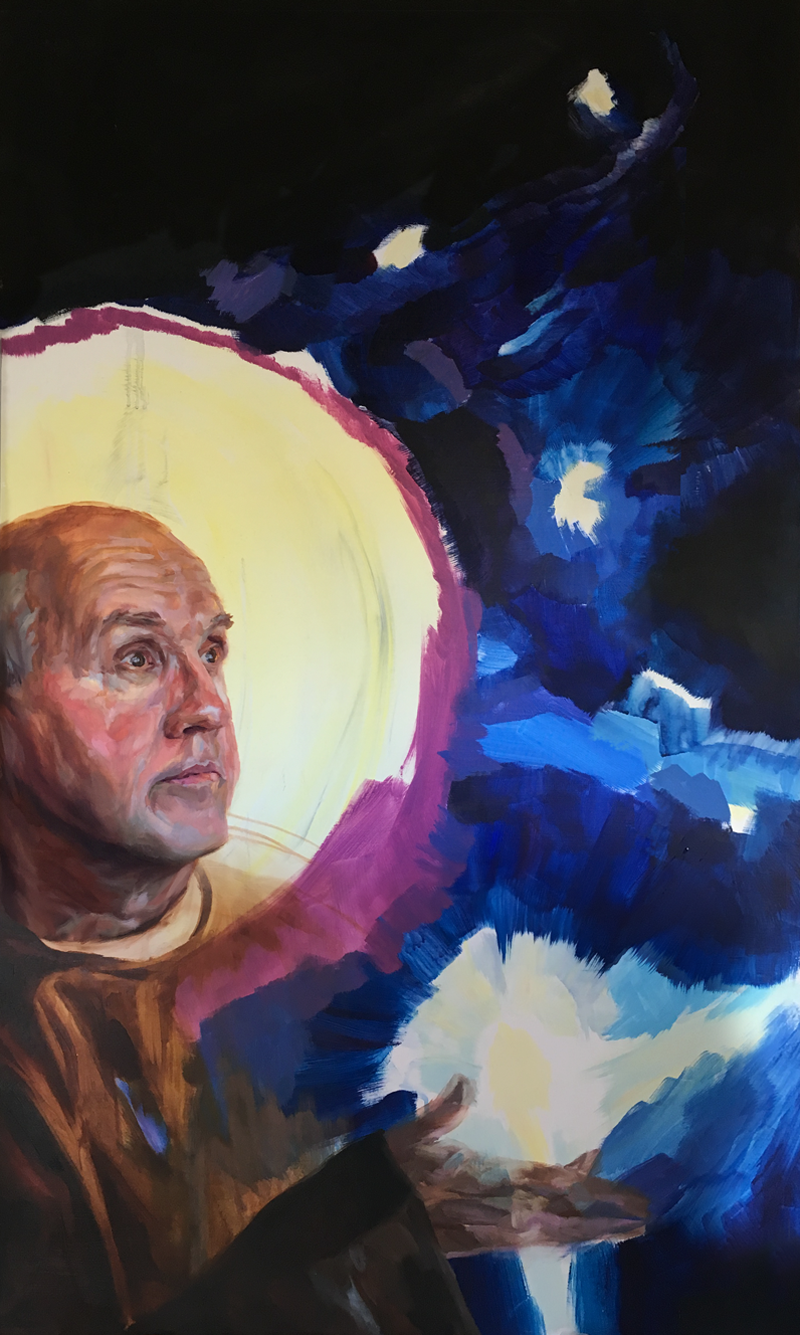St. Benedict of Nursia
St. Benedict and the Stars, 60” x 35," Oil on panel, by Melissa Carmon
ST BENEDICT OF NURSIA
Saint Benedict
The fires are burning
Man who knows,
who watches from shadows
waits, and all the while
tends flame
Little lights,
but patiently
your hands set to work
never ceasing
Little lights
set in strings
form veins
bring life
“In the black night of history
you yourself were a star”
In truth, we have forgotten what the
nightfall was like
we have forgotten that many things live
in a dark wood,
and that the hungry grey bark
of trees swallows sound
"The jar is broken, Benedict,”
They say. But Benedict doesn’t listen
he is too busy weaving
The monasteries, like knots
monasteries, like diamonds,
set like constellations on the mountains
illuminated letters like gems
span the skies
Benedict, with peace in death
a steady step, and steady hands
once put in motion, the momentum
rolls across centuries
Dust to dust, perhaps
But life to life as well
"The woods are full of ghosts, Benedict"
But he doesn’t answer. He only smiles.
And looks down to kindle another light.
Historical background:
St. Benedict (480 CE - 547 CE) In the tumultuous Middle Ages, when Europe was reshaped (and some would say, had disintegrated) after the fall of the Roman Empire, a small volume called the Rule of Saint Benedict, changed the world forever. Many monasteries were facing collapse, but this small volume on how to live successfully with one another in community caught on— country by country, hamlet by hamlet, hill by hill. His advice, which went against the Roman ideal of the pater familias, swept the continent.
The monasteries were stabilized and began to flourish, and that stability paved the way for learning and the preservation of culture. The monasteries preserved the classical writings of the ancients—texts that were later resurrected in the Renaissance. They taught literacy, preserved libraries, and painted illuminated manuscripts. Their dedication to the preservation of learning was to influence history drastically in the centuries to come. But at the time, Benedict was simply true to his vision. The recent Pope Benedict, who adopted his name, said of him, “In the dark night of history, you yourself were a star.”
